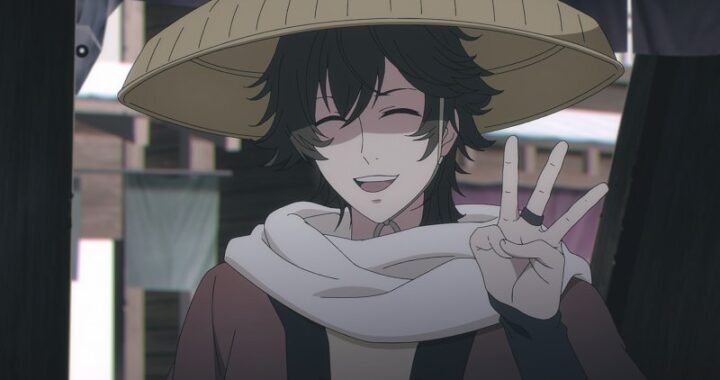
What They Say:
“Teaching Love”
Masayoshi Hazama: a man who has become a superhero “by himself” with no superhuman powers or any sort of high-tech conversions, NONE!! Hidenori Goto: a cop who found out the true identity of “the superhero” by a strange twist of fate and thus constantly gets in trouble thanks to Hazama, the superhero. This is the story of the birth of a true hero featuring these two young men with a touch of comedy and serious drama, while they come face to face with hardships as they search for the true meaning of becoming a hero of justice in this world!
The Review: (please note that content portions of a review may contain spoilers)
What is love? It’s likely a question we’ve only been asking since 1996, but it’ll never really be answered. As Ishihara says, love is different for every single person and there’s no way to quantify something like that.
So we realize that, even though Masayoshi loves so much his superheroes and his master, he has never loved a person the way his mother loved his father. This manifestation of love—or lack thereof, I should say—is what Masayoshi is really missing to complete his superhero persona according to Joji.
Why is this so important? Why should we as the viewer care? Well, I touched on it a bit in last week’s review, but I’ll ask again: What has Masayoshi been fighting for? To save the world? Yeah, but why? Because it’s the right thing to do? Because his superhero idols did it before him? Those last two questions are basically it. Why was Flamenco Black saving the world? His grandfather. Pink? For Joji. And the Red Axe himself? For his wife. Even the Flamenco Girls had someONE to fight for: each other. And in Mari’s case, Goto. In Goto’s case, his girlfriend.
We can ask again: What does it mean to be a hero? In this episode, it means to have someone to protect and Masayoshi never did. He had the world, but that isn’t love; you don’t love the world.
Sawada Haiji is the same as Masayoshi. Sawada was apathetic and never cared for anyone. His classmates barely knew him. But now he’s making Masayoshi realize that he loves people. Sawada, Ishihara says, is manifesting a form of love for Masayoshi. By hurting those closest to him, Masayoshi realizes that he loves the Flamengers, Kaname Joji, the Flamenco Girls, and, most importantly, Goto. Or, at least, he’s going to realize that.
The interesting thing here is that he’s showing worry and compassion, but it’s not the face of someone who loves those people. I think with that last scene with Sawada and Goto will fling Masayoshi over the proverbial edge. He realizes what love is and some shippers’ fantasies will be fulfilled while others will be shattered.
In Summary:
We have just ONE more episode of Samurai Flamenco left and it’s been a wild 20-something weeks of superheroes. This episode ended on one of the most frustrating cliffhangers I’ve seen ever and I watched all of Lost (J.J. Abrams and your mystery box…). Most exciting is to see how this all wraps up and whether the series is more or less than the sum of its parts. With such a regiment adherence to themes, I’m hoping it’s going to end with a bang, not a whimper.
Grade: B
Streamed By: Crunchyroll
Equipment: Radeon 7850, 24 in. Vizio 1080p HDTV, Creative GigaWorks T20 Series II



